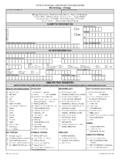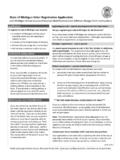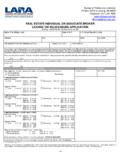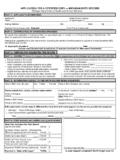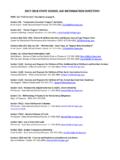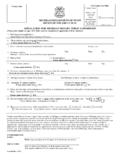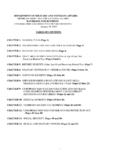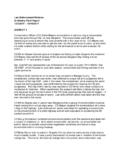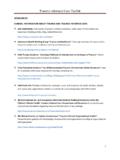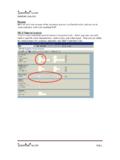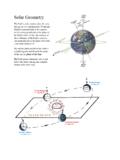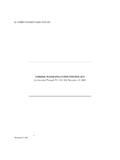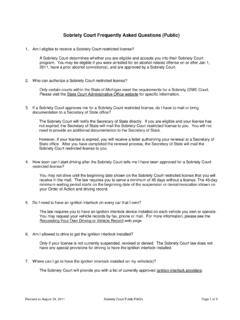Transcription of What You Need to Know if You Own Environmental Cleanup …
1 What You Need to Know if You Own or Purchase Property with Environmental Contamination This fact sheet will help you understand how Michigan s Environmental Cleanup programs affect you as a property owner, operator, or potential purchaser of contaminated property. While general questions about the state Cleanup program are addressed in this guide, more specific information can be easily obtained by: Writing or calling us -- the Department of Environmental Quality (DEQ), Remediation and Redevelopment Division (RRD) -- at the address and phone number provided below.
2 We'll make sure to connect you with the right person to help with your questions and provide the technical guidance you need to reuse the property safely. Visiting our Internet Home Page. Our web site has a complete version of the law regulating Michigan's revitalization and Cleanup programs, along with other related information: THE LAW GUIDING MICHIGAN S Cleanup PROGRAMS The Natural Resources and Environmental Protection Act, 1994 PA 451, as amended (NREPA), regulates facilities of Environmental contamination in Michigan.
3 This law includes many Parts related to protecting human health and managing contaminated sites. The RRD administers two of these parts (or programs, as we call them): Environmental Remediation1 and Leaking Underground Storage Tanks2; both are discussed in this bulletin. The origin of the release determines which program applies to a contaminatedproperty. The Environmental Remediation program covers releases of hazardous substances from a variety of sources ( commercial and industrial processes, above ground storage tanks, Environmental emergencies, etc.)
4 The Leaking Underground Storage Tank program covers releases from underground storage tanks. Both programs address who is responsible for cleaning up the hazardous substances, how to determine exposure risks, and how to inform the RRD of response activities taken to address the Environmental contamination. Facilities that are classified as treatment, storage and disposal sites3; waste disposal areas4; or oil, gas and mineral wells5 are regulated under other parts of the NREPA and are not included in the two Cleanup programs described in this bulletin.
5 Contact the DEQ at 1- 800- 662- 9278 or visit or more information about these programs. There are also federal Cleanup laws and requirements that may affect you, including liability under the Comprehensive Environ- mental Response, Compensation and Liability Act (CERCLA, or Superfund), and the Resource Conservation and Recovery Act (RCRA). Contact us (RRD) if you have questions about liability under CERCLA. NOTE A thorough review of the statute, administrative rules, and guidelines should be completed before making site -specific decisions.
6 The Environmental Cleanup law, rules, and guidelines are available electronically at this DEQ web site: Environmental Cleanup CITIZEN S GUIDE A fact sheet on Michigan s Environmental Cleanup programs Michigan Department of Environmental Quality Remediation and Redevelopment Division PO Box 30426, Lansing, MI 48909-7926 517-284-5087 Rick Snyder, Governor * C. Heidi Grether, Director Revised November 2016 Environmental Cleanup CITIZEN S GUIDE PAGE 2 ARE YOU LIABLE FOR A CONTAMINATED PROPERTY? You are not liable for the cost of Cleanup actions under Michigan s Environmental remediation or leaking underground storage tank programs or for oil, gas or mineral wells if: 1) You are not responsible for causing a release of a hazardous substance.
7 And you became an owner or operator of contaminated property before June 5, 1995 (or March 6, 1996 for sites with leaking underground storage tanks): OR 2) You become the owner or operator of a contaminated property on or AFTER June 5, 1995 (or March 6, 1996 for leaking underground storage tank sites), and you were not responsible for the release that caused the contamination, and you conduct an adequate Baseline Environmental Assessment (BEA)
8 For your property prior to or within 45 days of becoming the owner or operator, and you submit the BEA to the DEQ within the required timeframe, and you disclose the results of the BEA to subsequent purchasers or transferees (see Baseline Environmental Assessments). The same liability principles apply to people who control, but do not own, property -- they are designated as operators. People who lease property will often be operators. DO YOU HAVE TO CLEAN UP CONTAMINATED PROPERTY?
9 A facility is defined by Michigan s Cleanup programs as any area, place, or property where a hazardous substance in excess of the established state Cleanup standard for residential property has been released, deposited, disposed of, or otherwise comes to be located. Property is no longer a facility when actions to remove, reduce or treat the contamination are completed, lowering the amount of contamination to a level that is below the state s unrestricted residential Cleanup standards (see Cleanup Standards).
10 If you are liable for a facility, you are obligated by law to take appropriate response activities at that property. In particular, if you currently own or operate property that you know is a facility and you caused the contamination or are otherwise liable, you must: immediately stop a release at its source; control or eliminate any fire, explosion and direct contact hazard; remove liquid wastes and highly contaminated soils; identify the hazardous substances and the area affected by the release.
